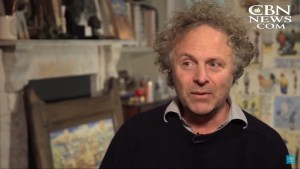Pope Francis has addressed the widening use of artificial intelligence technologies a number of times, applauding their propensity to aid in the common good, while cautioning against unethical and irresponsible use of AI. The Pontiff broached the topic at the Minerva Dialogues, a high-level annual gathering of technology experts and developers, on Monday.
While the Minerva Dialogues were surely on Pope Francis’ schedule for a while, his talk on AI coincidentally came after AI-generated images of the Pontiff wearing a puffy white coat went viral over the weekend. Many were fooled by the images, which were sufficiently realistic to have social media sources buzzing. Details like the lighting on the coat and the way his zucchetto rests on his head were especially convincing.
While the Pope made no mention of the images, his address to the gathered technological experts and representatives of the Church was a timely discussion on the responsible use of AI technology. Pope Francis said these new technologies have been “immensely beneficial” to humanity in the fields of medicine, engineering and communications, which he hoped would also extend to “religious values.” He said:
“I am convinced that dialogue between believers and nonbelievers on fundamental questions of ethics, science and art, and on the search for the meaning of life, is a path to peace and to integral human development.”
Pope Francis said that he was convinced of AI’s “potential to contribute in a positive way to the future of humanity.”
Still, he made it clear that the development of such technologies should be undertaken with the greatest of care and attention to responsibility and ethics. He urged developers to “respect such values as inclusion, transparency, security, equity, privacy and reliability.”
“I would therefore encourage you, in your deliberations, to make the intrinsic dignity of every man and woman the key criterion in evaluating emerging technologies; these will prove ethically sound to the extent that they help respect that dignity and increase its expression at every level of human life.”
The Pope expressed concerns that digital technologies may have a broadening effect on inequality throughout the world. He posed several questions to the assembled experts:
“Are our national and international institutions able to hold technology companies accountable for the social and cultural impact of their products? Is there a risk that increased inequality could undermine our sense of human and social solidarity? Could we lose our sense of having a shared destiny?”
Finally, Pope Francis reiterated the Church’s stance on the protection of human dignity, noting that a person’s “fundamental value cannot be measured by data alone,” and advised caution in delegating such judgements to the algorithms which process the data. He went on to decry the “contamination” of data based on modern societal prejudices and preconceptions, stating that “A person’s past behavior should not be used to deny him or her the opportunity to change, grow and contribute to society. “
“We cannot allow algorithms to limit or condition respect for human dignity, or to exclude compassion, mercy, forgiveness, and above all, the hope that people are able to change.”
Read the full account of Pope Francis’ address at the Minerva Dialogues here.



